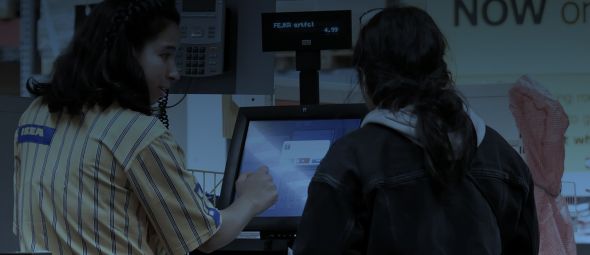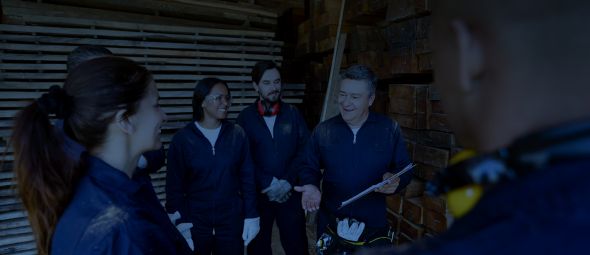Funded Projects
WorkRise invests in research projects that generate evidence on both challenges and solutions to accelerating economic mobility for workers.

Increasing Hispanic Workers’ Access to Paid Family Medical Leave
Amid federal efforts to enhance job quality and access to employer-provided benefits, states are implementing and expanding paid family medical leave programs. And with that, policymakers and employers need more information on how to better serve…

Do Labor Unions Improve Working Conditions for Health Care Workers?
Could unionization at hospitals and nursing homes have a role in improving wages and working conditions for frontline staff? A cross-disciplinary team will investigate that question and aim to determine how outcomes from unionization differ for Black workers in care settings.

Workforce Almanac: Shaping Inclusive Investments in Workforce Systems
This project seeks to identify more effectively how the workforce development sector is serving and underserving different communities, understand the types of jobs the sector trains for, and orient resource allocation and systemic change toward equity, effective programs, and areas of highest need.

Understanding Trends in California’s Labor Force Participation
Despite low unemployment and high job openings, labor force participation continues to decline across California’s diverse regions, fueled largely by demographic shifts and an aging population. The project seeks to understand this trend by conducting an in-depth analysis of the drivers of labor force participation in California, which has not recovered to pre pandemic levels

What Emerging Trends in the Transportation and Warehousing Sector Mean for Non-College-Educated Black Workers
This research study seeks to examine whether the postpandemic transportation and warehousing sector has created more job opportunities for Black workers without college degrees, and whether those jobs are durable, quality jobs with respect to wages, working conditions, and risks of automation and displacement.

How Does Federal and State Wage and Employment Policy Shape Racial Disparities in Earnings and Economic Mobility?
Researchers will build public-use datasets that generate evidence on how minimum wage policies and the federal-state Unemployment Insurance program have both mitigated and exacerbated racial inequality.

Creating Paths for STARs: Increasing Mobility Opportunities for Workers without BA Degrees
This project will generate insights on occupational pathways that can drive upward mobility for the estimated 71 million people in the US labor market who lack college degrees but are “skilled through alternative routes.”

Schedule Control at IKEA: How Does Worker Schedule Control Impact Employee Economic Security and Mobility?
The research team will conduct a pilot experiment with retailer IKEA that develops, tests, and evaluates new ways of giving hourly workers greater control over their schedules and assesses both employee and employer outcomes.

A Randomized Controlled Trial of the Pursuit Fellowship
Researchers will conduct a multiyear RCT to determine economic mobility outcomes of participants in the Pursuit Fellowship, a postsecondary IT skill and professional development program that prepares low-income adults without college degrees for careers in the tech industry.

The Impact of a Worker's First Job
Through the creation of a new linked dataset, this project seeks to understand how features and skill requirements of a worker’s first job shape wage and career trajectories and how these outcomes vary by race, gender, educational attainment, geography, and other worker characteristics.

The Workforce Almanac: Mapping the US Workforce Development Sector
The workforce development sector plays an important role in creating pathways for economic opportunity and mobility for workers without four-year college degrees, yet little is known about the sector in aggregate. This project aims to address this significant knowledge gap by combining information from state, federal, and private data sources to build a new and comprehensive public-use dataset on the workforce development sector.

Underemployment in the US: Its Distribution and Effects on Workers
This project aims to address knowledge gaps on underemployment by painting a more detailed picture of who these workers are across a variety of dimensions, including demographic characteristics, scheduling conditions, industry, occupation, wage and household income levels.

Addressing Racial Inequalities in Apprenticeships
This project aims to discern the drivers of racial inequalities in registered apprenticeships to design more equitable and inclusive programs, empower workers’ decisionmaking about apprenticeships, and improve enforcement of antidiscrimination policies.

Evidence-Based Subsidized Employment Programs
Unemployment rates in California remain higher than the national rate, and expanded subsidized employment (ESE) programs in California appear to be underused by people who could most benefit from them. This project will undertake a comprehensive mixed-method evaluation of California’s ESE programs.

Employee Experiences of Fair Workweek Ordinances
Fair workweek ordinances aim to improve the predictability, stability, and control over work hours and pay for millions of hourly wage employees. Yet little is known about how workers experience these laws. This project will address these knowledge gaps by building evidence on employee experiences of fair workweek ordinances.

A Workplace Divided: Survey Research and Stakeholder Engagement to Advance Equitable Workplaces
A national survey by Rutgers University found that Asian-American, Black, and Latino workers experience discrimination in private sector and government workplaces. Black workers, particularly black female workers, face the highest levels of discrimination, including unequal pay and denied promotions. The study highlights the impact of discrimination on career advancement and calls for interventions to promote equitable workplaces.

Accessing Pathways to Economic Security for Low-Wage Immigrant Manicurists
This project from the California Healthy Nail Salon Collaborative and the UCLA Labor Center explores how partnerships and sectoral boards can build a sustainable and equitable nail salon industry, focusing on two approaches from other sectors.

A Completed Sentence, but Ongoing Punishment: How Past Criminal Convictions Bar Floridians from Occupational Licensing Opportunities
This project will explore how Florida state regulations have stifled workforce development, the relationship between occupational licensing and recidivism, and policy proposals other states can employ to reduce barriers to workforce development for people with criminal records.

Fairness-Aware Machine Learning Models for Improving Workforce Diversity, Equity, and Inclusion
A research team led by AdeptID and Grads of Life will test the use of predictive models that use artificial intelligence bias-mitigation technology to identify overlooked talent within employers’ applicant pools.

Cash for Coloradans and Evidence for Equitable Upskilling
For this project, the Colorado Evaluation and Action Lab will evaluate programs through which three training and career development nonprofits in Colorado are offering their clients different cash supports, such as stipends and no-interest loans.

Advancing Economic Mobility in Manufacturing
Northeast Ohio is a powerhouse of manufacturing with nearly 10,000 highly concentrated manufacturing companies. But the region’s manufacturing sector faces a significant talent shortage, with an estimated 8,000 open jobs that on average provide salary and benefits totaling $70,000.

Testing for the Active Ingredients: Piloting Career Advancement Services in the Information Technology Sector
While many sectoral workforce development programs include post-employment advancement services, little is known about how effective they are, how much value they add, or how best to design them. Understanding such programs’ efficacy is critical to identifying proven, scalable strategies to expand economic security and mobility for workers with low incomes, and in particular, workers of color.


















